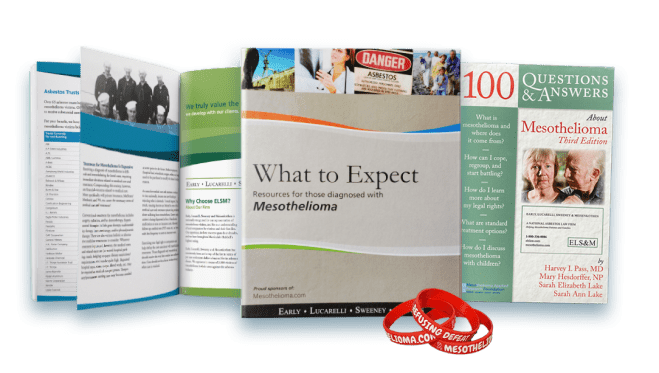Table of Contents
Home → Mesothelioma → Prognosis
Mesothelioma Prognosis
Mesothelioma prognosis generally describes a patient’s outlook and how the cancer may progress over time. While mesothelioma has a poor prognosis, research and new advancements in treatment have extended survival for many patients.
Key Facts
- Mesothelioma prognosis ranges from about 18-31 months.
- The type of mesothelioma, stage and patient demographic factors can impact prognosis.
- Patients may also hear other related terms: life expectancy (estimate of how long a patient may live) and survival rate (percentage of patients alive at a specific time).
- Treatment may help patients extend survival and improve quality of life.
What Factors Impact Prognosis?
Various factors may affect prognosis. These include the stage of the cancer, the type of mesothelioma you have, your age and general health. Treatment may help improve your prognosis. Talk to your doctor to determine how you may be able to improve your mesothelioma prognosis.
Stage of Mesothelioma
Staging determines if and how much mesothelioma cancer has spread from the original tumor site. Stages 1 and 2 typically have more treatment options and a better prognosis than stage 3 or 4.
The average life expectancy for each mesothelioma stage with treatment is:
Stage 1: 21–67 months
Stage 2: 19–67 months
Stage 3: 16–56 months
Stage 4: 12–26 months
It’s important to remember these are averages, and each patient is unique.
Type of Mesothelioma
The type of mesothelioma may refer to both the location of the cancer and the cancer cell type. Both of these attributes factor in a patient’s prognosis.
Prognosis for the types of mesothelioma are:
- Pleural mesothelioma develops in the lining around the lungs. Patients who receive treatment live 18 months on average.
- Peritoneal mesothelioma develops in the tissue lining the abdomen. The average prognosis is about 2.5 years.
- Pericardial mesothelioma develops in the lining around the heart. Prognosis is about six months.
- Testicular mesothelioma develops in the lining around the testes. Prognosis is about six years.
Mesothelioma cell type can also impact prognosis. The cell types are epithelioid, sarcomatoid and biphasic. Epithelioid has the best prognosis as it responds well to treatment. Sarcomatoid has the least favorable prognosis, but researchers continue to study treatments to improve prognosis.
Other Patient Factors
Other factors can play a role in a patient’s mesothelioma prognosis. These may include age, biological sex, other health conditions, diet, lifestyle and overall health. Not all factors are within a patient’s control, but anyone with mesothelioma should talk to their doctor about possible lifestyle changes.
Improving Mesothelioma Prognosis
Seeking treatment is the best way for patients to improve their quality of life and potentially extend their life expectancy. While there is no cure for mesothelioma, various treatments have shown some success in extending patients’ lives. Some patients have been mesothelioma survivors for 10 years or even longer.
Treatment may include chemotherapy, radiation therapy, immunotherapy, surgery and other complementary therapies. Talk to your doctor to determine the best options for your unique case.
Remission and Recurrence
Mesothelioma remission can mean there is a decrease in the extent of cancer. It can also mean the cancer is no longer detected at all.
Recurrence is when tumors regrow after a period of remission. Recurrence is common, so it’s vital for patients to keep seeing their care team for checkups even after remission.
There are various treatment options that can help patients extend survival. Researchers are focused on developing treatment options for recurrent mesothelioma.
